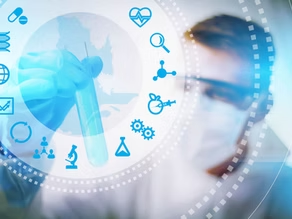By March 2021, the COVID-19 pandemic, caused by SARS-CoV-2 infection, had resulted in more than 2.8 million deaths and nearly 125 million infections worldwide. To support research and management of this crisis, the Quebec COVID-19 Biobank (BQC19) was created in Quebec, Canada, with the goal of collecting, storing, and sharing biological samples and clinical data. This biobank, covering a wide range of clinical manifestations of the disease, includes plasma, serum, blood cell, and DNA/RNA samples, as well as in-depth analyses of the genome, transcriptome, proteome, and metabolome. Managed under an ethical and legal framework approved by local health authorities, BQC19 aims to provide crucial data to the scientific community to better understand and combat the COVID-19 pandemic.
The Quebec
COVID-19
Biobank
Scientific resources for the study of COVID-19
OUR MISSION :
facilitate research
BQC19 helps unify research efforts across all research institutions in Quebec and facilitates research collaborations on a national and international scale.
The mission of BQC19 is to ensure that scientists have access to high-quality biological material from patients across Quebec, their clinical data, as well as multi-omic analyses conducted on its own collection.BQC19 adheres to the principles of open science and acknowledges that sharing these resources contributes to COVID-19 research efforts, helping address public health challenges posed by the pandemic based on solid scientific grounds and within an appropriate ethical and legal framework.

RESSOURCES
FOR RESEARCHERS
Material available
The BQC19 provides the scientific community with biological samples from the 24-month longitudinal follow-up of patients who developed COVID-19 and control participants.
Discover the material available
Data available
In addition to a wide range of high-quality clinical data, BQC19 also shares the results of numerous multiomics analyses carried out on its own samples.
Discover available data
BQC19 access request
Access high-quality biological material and data from patients infected and uninfected with SARS-CoV-2. As collected samples are a precious, limited and non-renewable resource, requests for access will be rigorously reviewed by the BQC19 Access Committee.

PUBLICATIONS
Discover and consult our scientific publications.


Effective responses to the COVID-19 pandemic require novel solutions for research and responsible data sharing. Biobanking presents itself as a key priority in furthering our understanding of COVID-19. In this article, we propose a tripartite approach to consent to create resources for research relating to COVID-19. The approach aims to link three levels of participation: COVID-19 patients, respiratory/infectious disease patients, and longitudinal study participants. We explore the potential approaches that can be taken to consent processes with these three participant groups. We furthermore describe an access model for both single-site and multi-site data and sample storage. Through dealing with these topics at a high level, the model may be adapted to local legal and ethical requirements while still pursuing its ultimate goal: the creation of a research infrastructure that supports transparent, strong, and open science.

This two-sample Mendelian randomization study assessed whether genetically elevated 25-hydroxy vitamin D (25OHD) levels causally reduce COVID-19 susceptibility or severity. Using genetic instruments from a GWAS of 443,734 individuals and outcome data from the COVID-19 Host Genetics Initiative (up to 14,134 cases and 1.28 million controls), the analysis found no significant association between increased 25OHD levels and COVID-19 susceptibility (OR = 0.95), hospitalization (OR = 1.09), or severe disease (OR = 0.97). These findings were consistent across multiple analytic methods and sensitivity analyses. Results do not apply to individuals with vitamin D deficiency but suggest no causal protective role of vitamin D in the general population against COVID-19, calling into question the prioritization of vitamin D supplementation in COVID-19 prevention strategies.
NEWS

4th BQC19 Symposium – A springboard for collective research
The BQC19 team invites you to its 4th symposium, which will take place on February…

Enrichment of new data sets – ROCHE, GWS and clinical
Montreal, Qc. The Biobanque québécoise de la COVID-19 (BQC19) is pleased to announce a new…

Many thanks for your participation
Dear BQC19 participant, We are contacting you on behalf of the Quebec COVID-19 Biobank to…